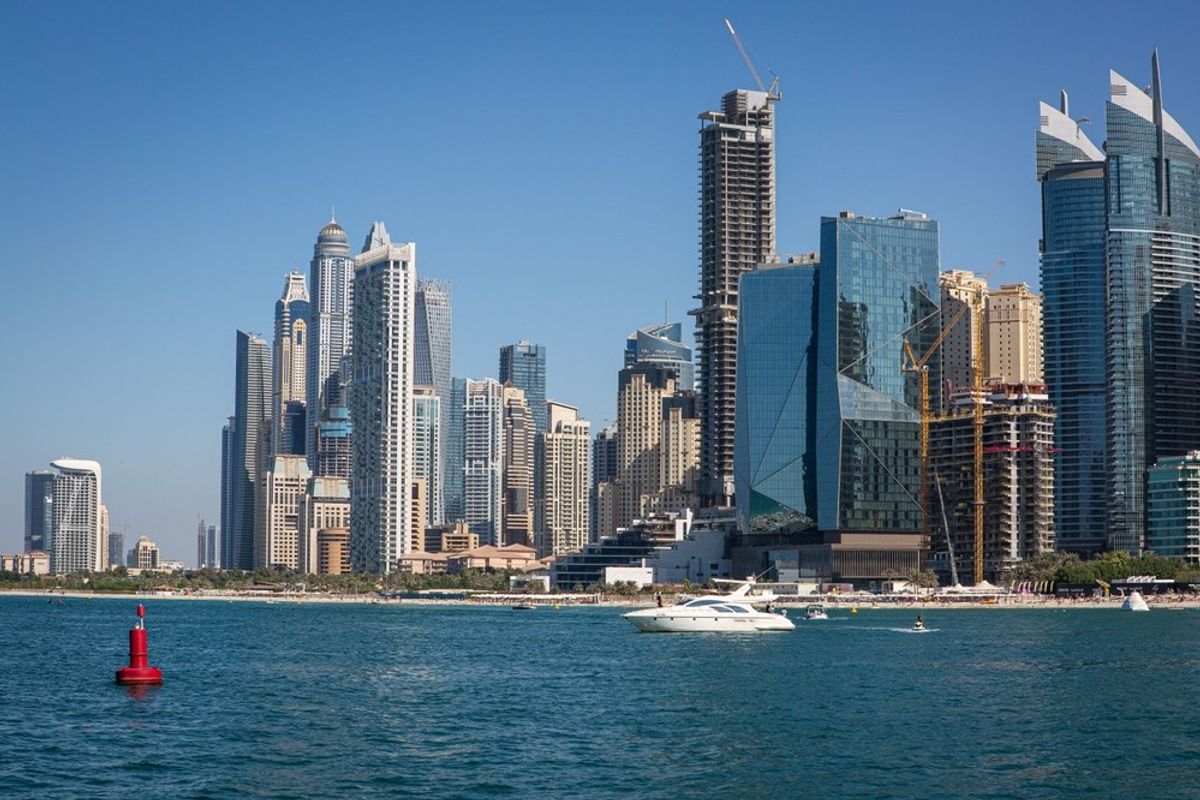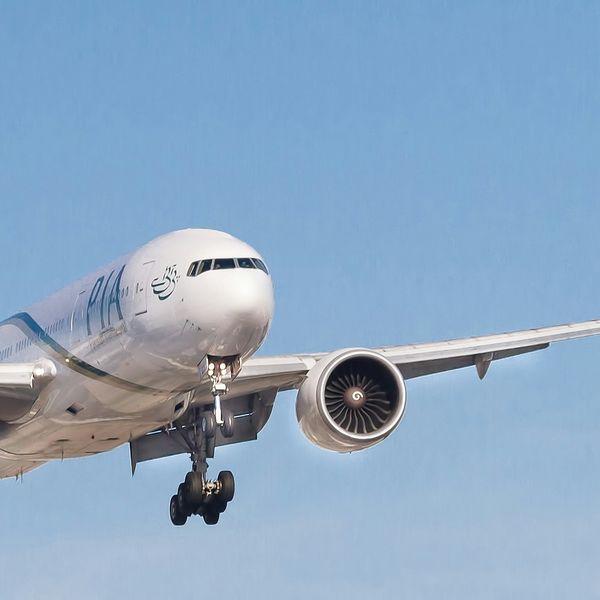Dubai’s Q2 2024 GDP rises 3.3% to reach AED116 billion
This growth has been fueled particularly by key sectors—logistics, technology, and tourism—which are at the core of the Dubai Economic Agenda D33.
Dubai Desk
The Dubai Desk reports on major developments across the UAE, covering news, culture, business, and social trends shaping the region.

Emirate's GDP in the second quarter of 2024 grew 3.3% year-on-year to reach AED116 billion,
Shutterstock
Sheikh Hamdan bin Mohammed bin Rashid Al Maktoum, Crown Prince of Dubai, Deputy Prime Minister and Minister of Defence of the UAE, and Chairman of The Executive Council of Dubai, announced that the emirate's GDP in the second quarter of 2024 grew 3.3% year-on-year to AED116 billion, according to Emirates News Agency (WAM).
The Crown Prince attributed Dubai's economic growth to the visionary leadership and directives of Sheikh Mohammed bin Rashid Al Maktoum, Vice President and Prime Minister of the UAE, and Ruler of Dubai, aligning with Dubai’s long-term goals for sustainable development.
Sheikh Hamdan highlighted the importance of collaborative teamwork in achieving the Dubai 2033 Plan's objectives, including the Dubai Economic Agenda D33 and the Dubai Social Agenda 2033. These agendas aim to establish Dubai as a global model of well-being, sustainable economic growth, and an international investment and business hub.
He affirmed that Dubai's economic growth aligns with Sheikh Mohammed’s vision to position Dubai among the world’s top economic centers. "Dubai today is more than a success story; it is an inspiring model for progress, where people’s aspirations and efforts shape a future filled with opportunity.” Sheikh Hamdan remarked.
Helal Saeed Almarri, Director General of Dubai's Department of Economy and Tourism, stated that Dubai's GDP growth in the first half of 2024 reflects “the visionary leadership of Sheikh Mohammed and the strategic direction of Sheikh Hamdan.” This growth has been especially driven by key sectors like logistics, technology, and tourism—core components of the D33 strategy.
Almarri added, “These sectors underscore our city’s ability to leverage strategic foresight, innovation, and cross-sector collaboration, to build a resilient and sustainable economy. The D33 strategy is already bearing fruit, consolidating Dubai’s position as a global economic leader, attracting investment, and fostering an ecosystem ripe for entrepreneurship and talent.”
“As we move forward, our focus will continue to be on accelerating innovation, embracing future technologies, and creating an inclusive, thriving business environment that aligns with our long-term goal of doubling Dubai's economy over the next decade and the unwavering commitment to global competitiveness and sustainable development," Almarri said.
Hamad Obaid Al Mansoori, Director General of Digital Dubai, noted: "The second-quarter statistics of 2024 signal a new and promising chapter in Dubai's journey, one driven by a dynamic economy that attracts investment, a thriving community, and a government that is leveraging the latest digital technologies to improve the lives of its citizens."
Younus Al Nasser, CEO of the Dubai Data and Statistics Establishment, highlighted the pivotal role of digital data in shaping new economic dynamics. He said that real-time statistical analysis supports accurate forecasting and strategic planning, enabling the maximisation of positive outcomes.
Al Nasser stated, “The true value of our economic data lies in its ability to provide an accurate picture of each sector’s contribution to comprehensive development. This is crucial for decision-makers in every organisation as they plan and strategise for the future, driving successes aligned with our overarching goals. These goals include positioning Dubai as a global hub for the new economy, grounded in sustainable development, digitisation, smart city solutions, and optimising the use of data as a key resource.”
Hadi Badri, CEO of the Dubai Economic Development Corporation (DEDC), the economic development arm of the Dubai Department of Economy and Tourism (DET), said: "This success is driven by coordinated efforts to attract investment, foster key sectors and advance innovation as part of the Dubai Economic Agenda D33. By streamlining processes for businesses, nurturing start-ups, and forging public-private partnerships, Dubai is accelerating sustainable and inclusive growth."
The GDP growth in Q2 2024 stemmed from various thriving sectors. The transportation and storage sector grew by 7.8%, contributing 13.6% to Dubai’s GDP and 31.3% to overall growth.
The information and communication sector expanded by 5.6% year-on-year, while the accommodation and food service sector grew by 4.7%.
The manufacturing sector grew by 2.5%, reaching AED10.6 billion in value, contributing 9.1% to GDP. Meanwhile, the electricity, gas, water, and waste management sector saw a 2.9% increase to nearly AED4 billion, contributing 3.4% to GDP.
The transportation and storage sector reached a value of AED15.85 billion, with air transport playing a key role, as national carriers experienced a 4.5% rise in passenger numbers.
This sector covers all activities related to land and water transport, handling and storage, postal services, air transport, and supporting activities. Air transport is a key contributor to this sector, positively influenced by the increased demand for services from national carriers, with passenger numbers rising by 4.5% in Q2 this year compared to the same period in 2023.
The financial and insurance sector grew by 4.6% year-on-year, reaching AED13.16 billion, accounting for 11.3% of Dubai’s GDP and 15.6% of overall growth.
The wholesale and retail sector remains the highest contributor by value, reaching AED28.68 billion with 2.2% growth. This sector spans end-user products, intermediate goods, and capital goods, impacting Dubai's diverse economy.
The accommodation and food services sector grew by 4.7%, welcoming 9.3 million international visitors in H1 2024—a 9% increase from H1 2023. This reflects Dubai’s strong public-private sector collaboration in establishing the Emirates as a premier global destination.
The real estate sector grew by 2.6%, reaching AED10.15 billion, contributing 8.7% to GDP. Real estate sales saw a 38% increase year-on-year, according to Dubai Land Department data.
In addition to key sectors, the construction sector grew by 1.8%, while other areas recorded 0.8% growth.







Comments
See what people are discussing